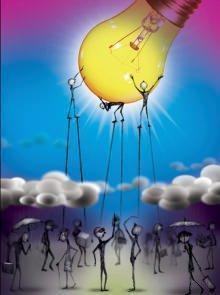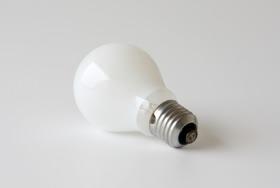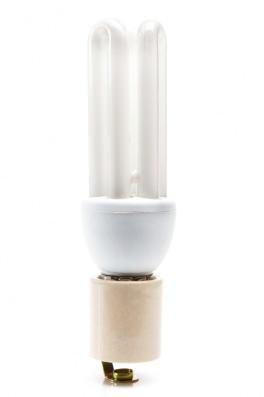How to save electricity for lighting
Post from EditorialsThe consumption of electricity in our houses is sometimes excessive, it takes some tweak in the life of every day to get a saving.
 The question of energy saving, it is a very sensitive topic especially in recent times. There are many ways to achieve this goal, one of these is surely the attempt to save electricity in your home, while at the same time to maintain a good amount and quality of light.
The question of energy saving, it is a very sensitive topic especially in recent times. There are many ways to achieve this goal, one of these is surely the attempt to save electricity in your home, while at the same time to maintain a good amount and quality of light.
These parameters, quantity and quality of light, influence the vision and the perception we have of the things we are surrounded with, in fact, the light is considered to be a key parameter for human life, as it affects your health, your safety, your morale, the living comfort etc ...
For this reason it is appropriate for every room in the house by virtue of the type of function it has, to have a different level of lighting.
What can be done with natural light points
One way to reduce energy consumption linked to artificial lighting, while ensuring a good level of lighting environments, is to maximize the use of natural light in the house.
This is done by trying to make the best points of light inside of our houses. Playing on the right input of daylight in the various environments through the use of windows and skylights.
Obviously, the optimal use of natural light in your home depends on the climate zone in which you are located, then on the conditions of exposure to the sun and the shape of the house itself. But it is also important to consider in terms of aesthetic and architectural size and position of windows, always keeping in mind the cardinal points.
In fact, all the lights that face south are ideal to let the natural light in to moderate seasonal temperatures. These allow the entry of sunlight in the winter, but during the summer if they limit it if they are shaded in a good way. The openings facing north instead of giving a good supply of sunlight during the day, during the summer limit the influence of thermal loads. The windows on the east and west provide good penetration of sunlight during both the morning and during the afternoon, but they can cause considerable amount of heat and glare during the summer, contributing little to solar heating during the winter.
What can be done with artificial lights

In our houses the electricity consumption is represented for approximately the 15% by artificial lighting. Today, new lighting technologies allow us to have a reduction in electricity consumption in the home equal to about 70%. This is possible thanks to the use of luminous bodies defined energy-efficient.
But this is not enough, there are certainly other factors that contribute to the reduction of power consumption, we are talking about the lighting control, that control the activation or deactivation of the automatic lighting according to your needs, the basic maintenance of the system that allows to maintain an optimal level of energy efficiency indicating when to turn off incandescent and fluorescent lights.
How much do you save by turning off the lights?
Surely each bulb is different from the others, so we can not speak to the general lines of energy savings due to switching off the lights because this depends on the type of lamp and the price of electricity. You must know that each lamp draws, among its features, a parameter that defines the nominal duration of operation, which represents the total number of hours of light that this will ensure. Obviously, the life of a light bulb is influenced by its use and the number of times which is activated and deactivated. How many more times is switched on and off a light bulb, the less its operating life will last.
You must know that each lamp draws, among its features, a parameter that defines the nominal duration of operation, which represents the total number of hours of light that this will ensure. Obviously, the life of a light bulb is influenced by its use and the number of times which is activated and deactivated. How many more times is switched on and off a light bulb, the less its operating life will last.
A special case are the incandescent lamps that normally would be turned off whenever they are not needed. Their use is widespread because they are inexpensive, but they are relatively inefficient bulbs.
In fact these bulbs absorb a lot of electricity, but all this energy consumption is largely converted into heat, only 10% -15% actually becomes electricity.
Therefore it is necessary to turn off the light when you actually do not need it, so as to achieve a substantial cost savings.
Moreover, we must specify that the light bulbs from September 1, 2012 are no longer on the market.
If we deal with the fluorescent lamps, we must consider that their operation is different, they do not provide instant light, they take a little more time to turn on. In fact, for this reason if you leave a room for a period of time not exceeding 15 minutes, it may be convenient to leave the light on.
This type of fluorescent lamps are more expensive to buy than incandescent ones. Their lifespan is influenced primarily by the number of times they are switched on and off. Obviously, depending on the type of lamp, its cost and the use made of it you can try to find the right compromise in order to achieve substantial energy savings.
Ultimately, in order to achieve energy savings in terms of electricity, we must try to have in our homes a good lighting design and at the same time make a moderate use of artificial lights.
79809 REGISTERED USERS










